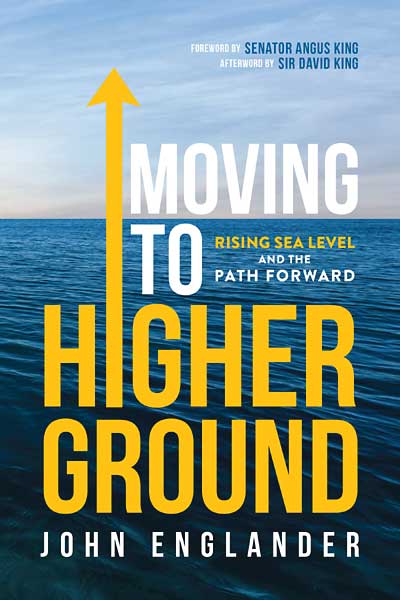April 1, 2021
NOW STREAMING
Accounting for the Human Factor
Traffic Separating Device, a quirky, 14-minute documentary from director Johan Palmgren, captures what happens when Stockholm's city council votes to install a "spårviddshinder," a device embedded in the middle of a busy street that allows buses, but not cars, to use a specific lane — or, as described by one of the locals, a "car trap."
Along the way, there are more than a few flat tires and broken axles, and one missed ferry ride leading to an aborted birthday party. It's humorous and light, but planners will recognize and identify with the real-world challenges presented by a well-intentioned traffic solution that goes horribly off-road.
In the end, the experiment delivers an important lesson: Even the simplest urban planning interventions need to account for "the human factor." Watch it now for free via PBS or American Documentary.
— Ezra Haber Glenn, AICP
READING LIST

Moving to Higher Ground: Rising Sea Level and the Path Forward
"The dumbest thing we can do is wait for the water to reach us," writes John Englander in his new book, Moving to Higher Ground: Rising Sea Level and the Path Forward, following up on his 2012 title High Tide on Main Street. He makes a convincing case that sea levels are rising due to global warming and the resulting glacial meltdowns. The speed of rise is likely to surprise residents of offshore islands (Holland Island in Chesapeake Bay is already gone) and inland places like Sacramento, California.
"Even if we could immediately stop all carbon dioxide emissions and the warming, the excess heat already stored in the sea will continue to melt the ice sheets for centuries." This is a challenge for which few jurisdictions are ready.
The author makes clear that U.S. federal flood insurance is a disaster in itself — in fact, it's not even insurance, it's a government-promoted incentive for people to build close to the water rather than move inland. Attempts to put the program on a realistic basis have so far failed.
How to get people and politicians to pay attention? Englander defers to the late French explorer Jacques Cousteau, who hoped to see citizens and organizations take the lead, presenting complex issues in simple, visual, and emotionally compelling terms.
— Harold Henderson

Image courtesy Harvard Graduate School of Design.
On Just Cities
The Harvard Graduate School of Design's Just Cities Lab asked 26 urban designers, artists, activists, doctors, mayors, ecologists, and philanthropists to answer two pressing questions: What does a just city look like, and how can we start creating them? The result is a fascinating, inspiring, and challenging collection of essays about 22 cities on five continents.
PLANNERS PLAYLIST
The Road to Resilience
The monthly podcast Future Cities has one overarching theme: urban resilience. Through its survey of ongoing research, cutting-edge projects, and storytelling from a wide variety of perspectives, the show identifies existing and emerging best practices in resilience — all while giving the field a broader, more comprehensive definition that better fits our needs and challenges today.
TOOLKIT
All-Ages Biking
50+ Cycling Survey Databook 2020, a new resource from dblTilde Collaborative, uses survey responses to asses what older cyclists need now and in the future. The result is comprehensive guidance for all-ages biking policy, with keen observations about how to support and encourage cycling as a mode of transportation and recreation.
— Lindsay R. Nieman





